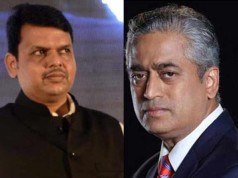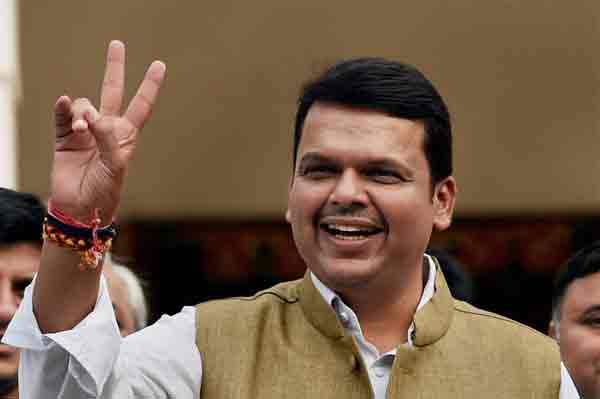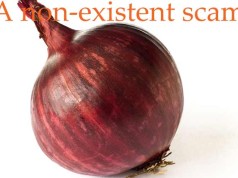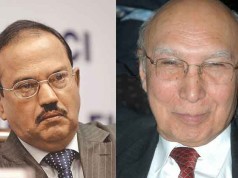By Shankkar Aiyar
It is that time of the year when the silly season sets in in Delhi. As political parties add to the haze and dust —treating incidents as events and celebrating events as achievements — a few observations and comments.
Like it would seem the Congress party has taken the famous Jaipur revelation of “power is poison” much too seriously. It has since lost power in state after state, the Centre and then some more. Like nobody quite knows the fate of the promise to reboot the Congress in ways “unimagined”.
Like the problem with the Congress is that it faces an institutional crisis. Fact is, the individualisation of solution—in organisation or in government—leads to institutionalisation of failure. Nevertheless, the party, typically, is seeking to present and perpetuate the individual as the solution.
Like the big event to showcase Rahul Gandhi is apparently the farmers’ rally. The fulcrum of revival, apparently, is the new/amended Land Acquisition Bill and how it is anti-farmer. The context is rich with irony. It was the Congress which moved the first amendment enabling land acquisition and the party will need to live with its history.
Like, land ownership is important. But also critical is making agriculture economically sustainable. How viable is agriculture? Suffice to say nearly six of 10 rural Indians live off less than 14 per cent of national income. India’s largest private sector is also the most licensed sector—production, pricing, distribution, exports are subject to whims and fancies of ruling regimes, and farmers will root for anyone who can sincerely champion their cause. Does Congress have a prescription for agriculture? Does Rahul Gandhi have an ideological template for the party?
Like the Congress could argue that they did well by the farmer. Facts are not necessarily favourable. Yes, MSP was hiked. Sure, there was the Rs 70,000-crore loan-waiver. But little was done for improving yields and incomes, and the waiver was more for recapitalisation of banks. Could the Congress have been more imaginative with Rs 70,000 crore? Could it not have used this money productively—to create programmes to incentivise the shift to drip irrigation, to promote diversification, to create a cooperative network for crop insurance, to kick-start Amul II for perishables?
Like the response of the BJP hasn’t been revolutionary either. Take the issue of losses incurred by farmers following unseasonal rains. Like it is true that the government has given an assurance of assistance on the floor of Parliament, but two months on, neither the quantum of loss nor the quality of assistance is clear. Yes, banks have been asked to rollover/restructure loans. Fact is barely a third of the farmers have access to bank credit. And the FCI has been asked to lower standards for procurement—are PDS consumers guinea pigs?
Like the BJP is right that the top job in the Congress is inherited. The corollary that begs to be asked is: is there a challenger? What is more disturbing is the post-1991 trend—for “appointed leadership”. The first time it was the second choice—P V Narasimha Rao. Sure, Rao dismantled licence raj and liberalised the economy. But the ship was turned around by Chandra Shekhar—when he allowed the refuelling of US warplanes and agreed to a bailout from IMF in January 1991. Then in 2004 the Congress anointed Manmohan Singh—a la family-owned enterprises appointing CEOs.
Like the problem with the Congress has been its inability to articulate what it stands for. More importantly, its inability to stand up for what it claims it is opposed to. For instance, the response to the suggestion by the Shiv Sena to disenfranchise Muslims was pusillanimous to say the least. This in a party stacked with the top lawyers of the country.
Like the Congress is hardly an exception. Stir the alphabet soup of regional parties — AIADMK, DMK, PMK, TDP, SP, RJD, TMC, BSP, RLD, JMM, NC, NCP among others are mostly family enterprises propped by a retinue of caste troopers, aspirants and rent seekers.
Like it is interesting to note that most regional parties have been in alliance with both the Congress and BJP—translating convenience into conviction.
Like the BJP spokespersons must curtail the manufacture of gloat. The BJP has its share of family trees. More to the point, the extended Parivar the BJP shares power with in three states are all family-run parties—the Akali Dal in Punjab, the PDP in J&K and the Shiv Sena in Maharashtra.
Like, seriously, the issue is not about dynasts or dynastic politics. After all, in the oldest democracy of the world the next Presidential contest could well be between the Second Clinton and the Third Bush. In the run-up to the polls, the debate is scarcely about pedigree. It is about solutions—for employment, growth, national security, welfare etc.
Like it is time India’s political class migrated from the politics of rhetoric to a contest of ideas and outcomes.
Shankkar Aiyar is the author of Accidental India: A History of the Nation’s Passage through Crisis and Change, and can be reached at shankkar.aiyar@gmail.com.
PollUpdates.com is not responsible for the accuracy, completeness, suitability, or validity of any information in the article. The article was first published on Indian Express and is provided on an as-is basis with links to the original article.









